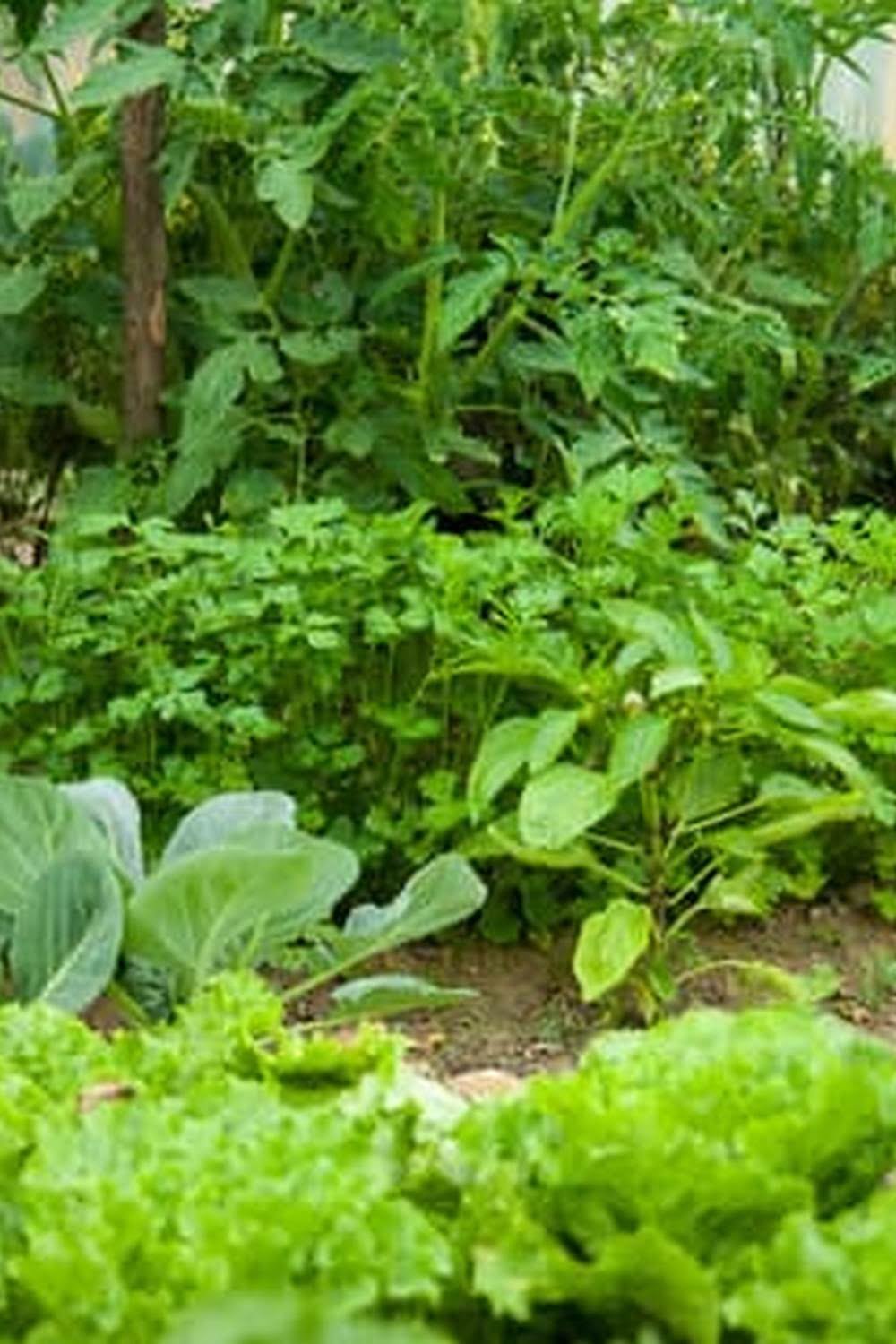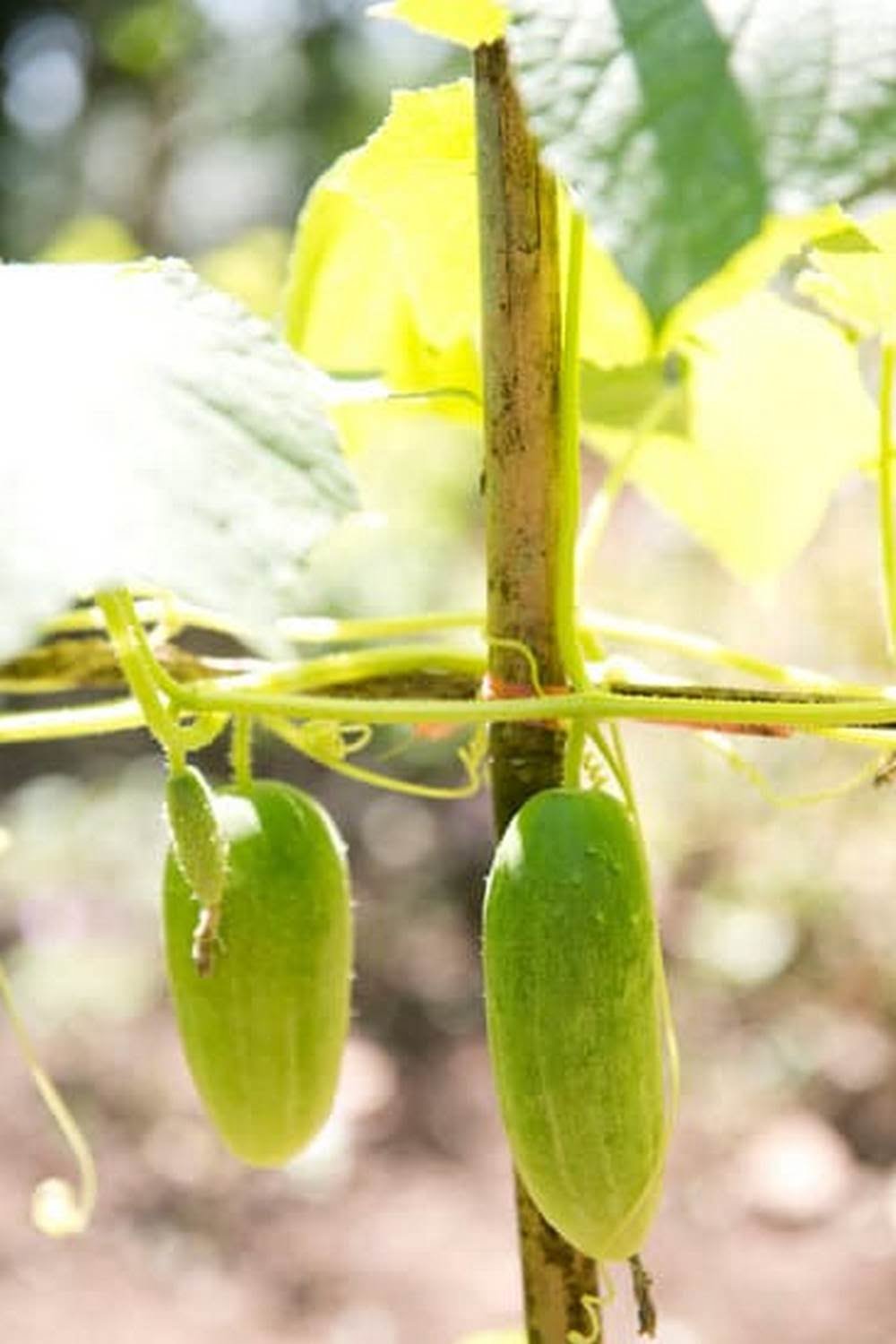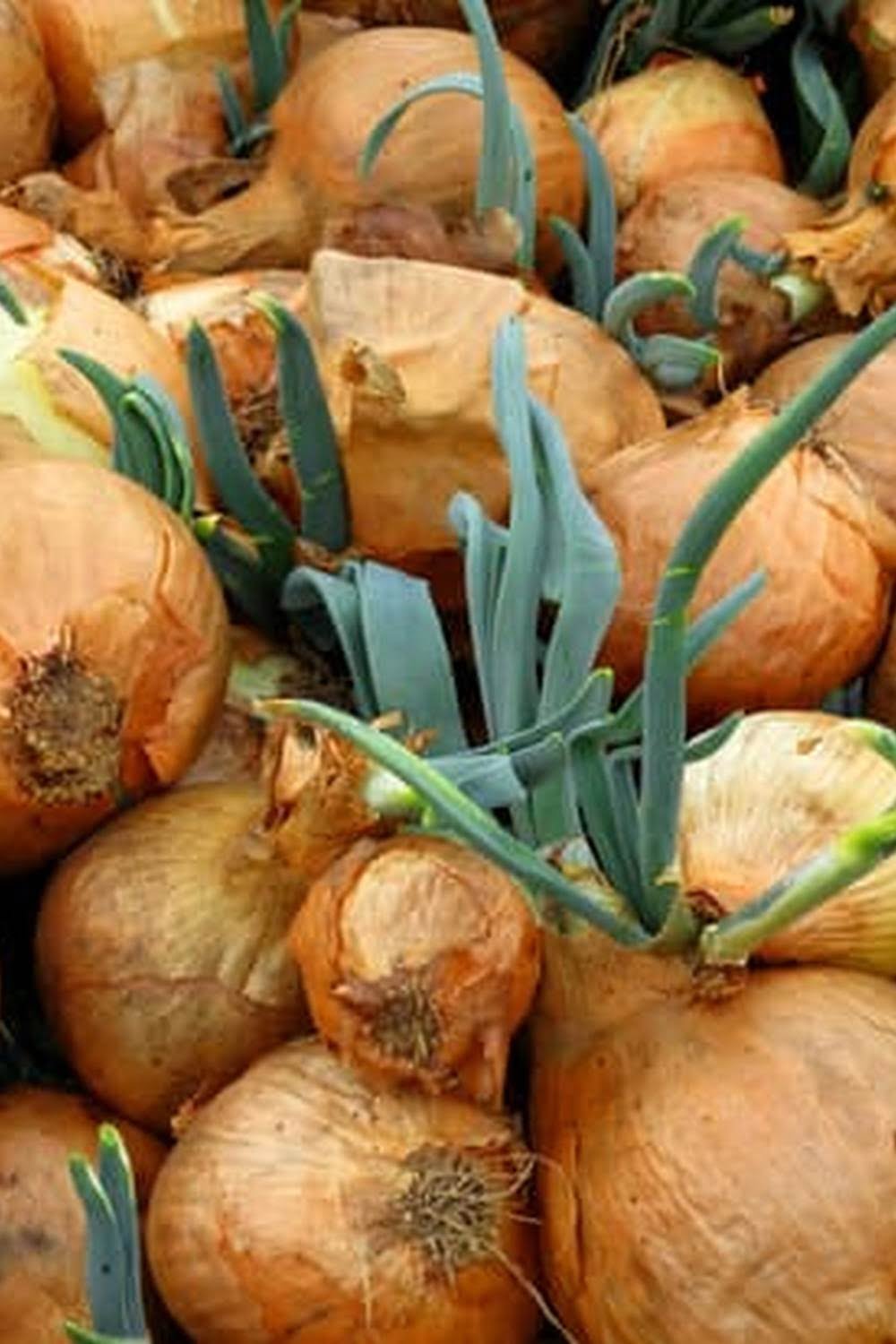Are you looking to enhance the quality of your vegetable garden? By learning how to make your own soil for vegetable gardens, you can significantly improve the health and productivity of your plants. The foundation of a thriving garden lies in the soil it grows in, making it essential to understand the importance of soil quality in vegetable gardening.
When you make your own soil, you have the opportunity to tailor-make a nourishing blend that suits the specific needs of your plants. By customizing your soil mix, you can ensure optimal growth and yield from your vegetables while minimizing the risk of nutrient deficiencies or imbalances. Not only does creating your own soil provide a cost-effective solution, but it also allows for greater control over the overall health of your garden.
To achieve successful vegetable gardening, it’s crucial to comprehend the essential components that contribute to healthy soil. Organic matter, minerals, and pH balance are key factors that play a significant role in supporting plant growth and development. By focusing on these components and understanding their role in soil composition, you can create a rich and fertile environment for your vegetable garden to thrive in.
Benefits of Making Your Own Soil
One of the key aspects of successful vegetable gardening is having high-quality soil that provides the necessary nutrients and structure for healthy plant growth. Creating your own soil mix for vegetable gardens can offer a plethora of benefits that contribute to the overall success of your gardening endeavors. By customizing your soil mix to meet the specific needs of your vegetables, you can ensure optimal growth and yield in your garden.
Here are some advantages of making your own soil for vegetable gardens:
- Cost-effective: Making your own soil mix can be a more budget-friendly option compared to purchasing pre-made soils from stores.
- Customization: You have full control over the ingredients in your soil mix, allowing you to cater to the specific requirements of different vegetable plants.
- Healthier Plants: Homemade soil mixes tend to be richer in nutrients and organic matter, which promotes robust plant growth and resistance to diseases.
When considering how to make your own soil for vegetable gardens, it’s important to understand the essential components needed for healthy soil. Organic matter, such as compost, provides essential nutrients and improves soil structure. Minerals like perlite and vermiculite help with drainage and aeration, ensuring proper root development. pH balance is also crucial, as it affects nutrient availability to plants. By knowing these key components, you can create a balanced and fertile soil mix that supports optimal vegetable growth.
Creating a homemade soil mix involves selecting the right ingredients and properly mixing them together. Here’s a simple guide on how to make your own soil for vegetable gardens:
- Start with high-quality compost as the base of your soil mix.
- Add peat moss for moisture retention and improved texture.
- Incorporate perlite or vermiculite for drainage and aeration.
By following these steps and understanding the benefits of making your own soil mix, you can elevate your vegetable gardening experience and enjoy healthier plants with higher yields.
Understanding Soil Components
When it comes to vegetable gardening, understanding the components of soil is crucial for successful plant growth. To create a healthy environment for your vegetables to thrive, you need to ensure that your soil contains essential elements like organic matter, minerals, and the right pH balance. Knowing how to make your own soil for vegetable gardens allows you to customize the mix to meet the specific needs of your plants.
Organic matter is a key component of healthy soil as it provides essential nutrients for plant growth and improves soil structure. Adding compost to your homemade soil mix is a great way to increase organic matter content. Compost enriches the soil with valuable nutrients and microorganisms that promote plant health. Additionally, incorporating peat moss into your soil mix can help retain moisture and improve drainage, while providing a source of organic material.
In addition to organic matter, minerals play a vital role in maintaining soil fertility. Minerals like nitrogen, phosphorus, and potassium are essential for plant development. Including mineral-rich additives like perlite and vermiculite in your homemade soil mix can help provide these necessary nutrients.
These components also aid in improving soil structure by promoting aeration and water retention. By understanding the importance of these essential components in soil, you can create a balanced and nutrient-rich environment that supports healthy vegetable growth in your garden.
Choosing the Right Ingredients
When it comes to creating your own soil mix for vegetable gardens, selecting the right ingredients is crucial to ensure the health and productivity of your plants. By choosing quality components, you can provide your vegetables with the necessary nutrients and conditions for optimal growth. Here are some tips on selecting the best ingredients for your homemade soil mix:
- Compost: Compost is a key component in homemade soil mixes as it provides organic matter and essential nutrients for plant growth. You can either make your own compost using kitchen scraps, yard waste, and other organic materials, or purchase ready-made compost from a garden center.
- Peat Moss: Peat moss is another important ingredient that helps improve soil structure by loosening dense clay soils and retaining moisture in sandy soils. It also has a slightly acidic pH, which can be beneficial for certain vegetable plants.
- Perlite: Perlite is a lightweight volcanic rock that helps improve drainage in soil mixes by preventing compaction and allowing air to reach plant roots. It also helps prevent waterlogging, which can lead to root rot in plants.
- Vermiculite: Vermiculite is a mineral that aids in moisture retention and improves soil aeration. It also helps regulate soil temperature, providing a more stable environment for plant roots to thrive.
By incorporating these ingredients into your homemade soil mix, you can create a well-balanced medium that promotes healthy growth and development of your vegetable plants. Experimenting with different ratios of these components based on the specific needs of your plants can help you tailor the soil mix to meet their requirements. With the right combination of compost, peat moss, perlite, and vermiculite, you can create nutrient-rich soil that will support flourishing vegetable gardens.
Remember to source high-quality ingredients from reputable suppliers to ensure the success of your homemade soil mix. Investing in good quality components may require an initial upfront cost but will pay off in the long run through improved plant health and bountiful harvests. Taking the time to select the best ingredients for your homemade soil mix is essential for creating a thriving environment that will nourish your vegetable garden throughout the growing season.
Mixing Your Soil
Creating your own soil mix for vegetable gardens can be a rewarding experience that not only benefits your plants but also allows you to tailor the soil to meet the specific needs of your garden. To start making your own soil, you will need to gather the necessary ingredients such as compost, peat moss, perlite, and vermiculite. These components are essential for providing the right balance of nutrients, aeration, and drainage for your vegetable plants.
Once you have gathered all the required ingredients, it’s time to start mixing your soil. Begin by combining equal parts of compost and peat moss in a large container or wheelbarrow. These two components will provide organic matter and help retain moisture in the soil. Next, add perlite and vermiculite to the mix to improve aeration and drainage. It’s important to blend all the ingredients thoroughly to ensure an even distribution of nutrients throughout the soil.
After mixing the components together, take some time to break up any clumps and ensure a consistent texture in the soil. You can use a shovel or gardening fork to achieve this step effectively.
Once you have achieved a well-blended soil mix, it is ready for use in your vegetable garden beds or containers. Remember that homemade soil mixes may need periodic adjustments based on your plants’ growth and overall performance in order to maintain optimal conditions for healthy vegetable development.
| Benefit | Description |
|---|---|
| Customization | Making your own soil allows you to customize the nutrient content and structure according to your specific vegetable plants’ needs. |
| Cost-effective | Creating homemade soil can be more cost-effective than purchasing pre-made mixes from stores over time. |
| Sustainability | By using organic materials like compost in your homemade soil mix, you contribute to sustainability by recycling natural resources. |
Testing Soil Quality
When it comes to creating your own soil for vegetable gardens, it is crucial to ensure that the quality of your homemade soil mix meets the necessary standards for healthy plant growth. There are several simple methods you can use to test the quality of your soil before planting your vegetables.
One common approach is to conduct a pH test using a pH testing kit, which will indicate whether your soil is acidic, neutral, or alkaline. Different vegetable plants thrive in different pH levels, so adjusting your soil accordingly will help optimize their growth.
Another important aspect to consider when testing your homemade soil mix is its nutrient content. You can send a sample of your soil mix to a local agricultural extension service for a detailed analysis of its nutrient composition. This will help you determine if any additional nutrients need to be added to enhance the fertility of your soil for vegetable gardening.
Additionally, observing the texture and consistency of your soil can also provide valuable insights into its quality. Soil that is too dense or compacted may hinder root development and water absorption, so incorporating organic matter like compost can improve its structure.
Furthermore, conducting a simple germination test can give you a good indication of whether your homemade soil mix is suitable for planting vegetables. Select a few seeds from the vegetables you plan to grow and plant them in pots filled with your soil mixture.
Keep them well-watered and observe how quickly and successfully they germinate. Healthy seedlings sprouting from the soil indicate that it is conducive to plant growth, while slow or unsuccessful germination may signal issues with the soil composition that need to be addressed.
| Soil Testing Method | Description |
|---|---|
| pH Testing | Use a pH testing kit to determine acidity/alkalinity levels |
| Nutrient Analysis | Send sample for detailed analysis by agricultural extension service |
| Germination Test | Plant seeds in pots filled with homemade soil mix and observe germination success rate |
Adjusting Soil Composition
Understanding Plant Nutrient Requirements
Different vegetable plants have varying nutrient requirements for optimal growth and productivity. Some plants may require more nitrogen for leafy growth, while others may need additional phosphorus for root development or potassium for fruit production. It is essential to understand the specific needs of the vegetables you are growing in order to make appropriate adjustments to your soil mix.
Customizing Soil pH Levels
The pH level of your soil plays a crucial role in nutrient availability to plants. Most vegetable plants prefer a slightly acidic soil with a pH range between 6.0 and 7.0.
However, certain plants like blueberries thrive in more acidic soils, while others such as asparagus prefer slightly alkaline conditions. By testing the pH of your homemade soil mix and making necessary adjustments using additives like lime or sulfur, you can create an ideal growing environment for each type of vegetable plant.
Adding Supplements for Specific Needs
In addition to adjusting nutrient levels and pH, you can also add supplements to your soil mix to meet the specific needs of different vegetable plants. For example, adding bone meal can provide extra phosphorus for root vegetables like carrots and potatoes, while incorporating kelp meal can supply trace minerals beneficial for overall plant health. By customizing your soil mix with targeted supplements, you can ensure that each vegetable plant receives the necessary nutrients for successful growth and bountiful harvests.
By understanding the individual requirements of different vegetable plants and making tailored adjustments to your soil mix, you can create an environment that promotes healthy growth and abundant yields. Experimenting with various combinations of ingredients and supplements allows you to fine-tune your homemade soil mix to meet the unique needs of each crop in your vegetable garden.
With proper care and attention to detail in adjusting your soil composition, you can set yourself up for a thriving garden full of nutritious homegrown produce.
Maintenance and Care
Regular Monitoring and Maintenance
To ensure the longevity and effectiveness of your homemade soil mix for vegetable gardens, it is essential to regularly monitor and maintain its quality. This can be done by periodically checking the moisture levels, nutrient content, and pH balance of the soil.
By staying on top of these factors, you can make necessary adjustments to keep your soil in optimal condition for vegetable plant growth. Additionally, inspecting the soil for any signs of pests or diseases is crucial in preventing any potential issues that could harm your vegetable garden.
Adding Nutrients and Amendments
Over time, the nutrients in your homemade soil mix may become depleted as they are absorbed by growing plants. To replenish these nutrients and ensure that your vegetables continue to thrive, consider adding organic fertilizers or compost to enrich the soil.
This will provide essential nutrients such as nitrogen, phosphorus, potassium, and trace minerals that are vital for healthy plant growth. Additionally, incorporating amendments like lime or sulfur can help maintain the proper pH balance of the soil to create an ideal environment for vegetable plants.
Protecting Soil Structure
One key aspect of caring for your soil over time is protecting its structure from compaction and erosion. Avoid walking on garden beds where vegetables are planted to prevent compaction, which can restrict root growth and water absorption.
Adding a layer of mulch on top of the soil can also help retain moisture, regulate temperatures, and prevent erosion caused by heavy rainfall or watering. By taking these measures to protect the structure of your soil, you can promote healthy root development and overall plant growth in your vegetable garden.
Conclusion
In conclusion, the process of creating your own soil for vegetable gardens can be incredibly rewarding and beneficial for the overall health and success of your plants. By understanding the essential components needed for healthy soil, choosing the right ingredients, and properly mixing and preparing your soil mix, you can provide an optimal growing environment for your vegetables.
Not only does making your own soil allow you to tailor the composition to meet the specific needs of different plants, but it also gives you control over the quality and purity of the soil.
One of the key benefits of making your own soil is that you can ensure that it is free from harmful chemicals and pesticides, which is especially important for those growing organic vegetables. Additionally, homemade soil mixes are often more cost-effective in the long run compared to store-bought alternatives.
By testing the quality of your homemade soil mix regularly and making any necessary adjustments, you can maintain a healthy balance of nutrients and pH levels to support robust plant growth throughout the seasons.
If you’re looking to take your vegetable gardening to the next level, consider trying your hand at making your own soil mix. Whether you’re a seasoned gardener or just starting out, experimenting with different ingredients and techniques can be a fun and educational experience.
So why not give it a try? Take control of your garden’s soil health and see firsthand how homemade soil can make a significant difference in the vitality and yield of your vegetable plants.
Frequently Asked Questions
How Do You Make Good Soil for Vegetable Garden?
Good soil for a vegetable garden can be achieved by ensuring a balanced mix of organic matter, like compost or aged manure, with the existing soil. This mixture provides essential nutrients for the plants to thrive and helps retain moisture.
How Do You Make Homemade Garden Soil?
Making homemade garden soil involves combining different ingredients like peat moss, compost, perlite, and vermiculite. These components help improve drainage, retain moisture, and provide essential nutrients for plant growth. Regularly turning the soil mixture also helps aerate it.
What Is the Best DIY Soil Mix for Container Vegetable Garden?
The best DIY soil mix for a container vegetable garden usually consists of a blend of peat moss, vermiculite or perlite, and compost. This combination ensures good drainage and moisture retention while providing the necessary nutrients for healthy plant development. Adjusting the ratio based on specific plant needs is essential for optimal growth.

If you’re looking to get into vegetable gardening, or are just looking for some tips on how to make your current garden better, then you’ve come to the right place! My name is Ethel and I have been gardening for years. In this blog, I’m going to share with you some of my best tips on how to create a successful vegetable garden.





